solve for x:

x = 7
If angles 4 and 7 are congruent, this theorem will prove lines x and y are parallel
What is the converse of the alternate interior angles theorem
This is the sum of all the interior angles in a triangle
What is180 degrees
The sum of these angles is equal to the measure of angle 4
What are angles 1 and 2
All vertical lines are
Solve for x
x=20
if m<1 = m<2, this theorem will prove that lines m and l are parallel
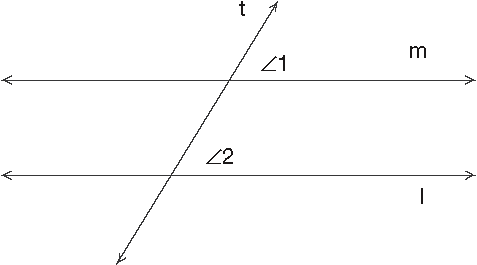
What is the converse of the corresponding angles theorem
If two angles in a triangle are 30 degrees and 60 degrees respectively, this is the measure of the third angle
What is 90 degrees
The value of x
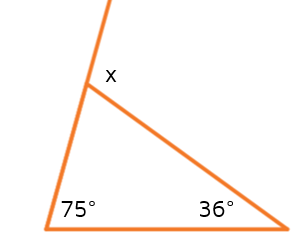
What is 140
Two non-vertical lines are perpendicular if and only if
Their slopes are opposite reciprocals
This postulate describes two supplementary angles formed by a transversal cutting a pair of parallel lines
What is the same side interior angles postulate
This theorem can be used to show l and m are parallel.
What is the converse of the same side interior angles postulate
The value of x in this this image:
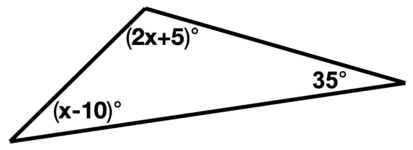
what is x = 50
The value of x
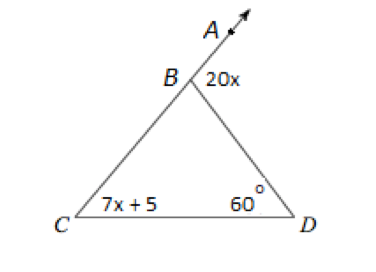
What is 5
Line AB goes through points (-3, 0) and (0, 4), and line CD goes through points (-3, -5) and (3,3).
Find the slope of each line and determine if the lines are parallel or perpendicular
Slope of both lines is 4/3
The lines are parallel
Line AB and CD are parallel, this theorem says that angles H and K are congruent
What is the alternate exterior angles
This value of x will make l and m parallel
What is x = 13
The value of x:
what is 14
The value of of the unlabeled angle
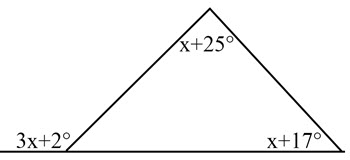
what is 50
The equation of the line through the point (2,3) perpendicular to the line 5x - 8y = -14 in point slope form.
what is y - 3 = -8/5(x - 2)
Solve for x
x = 8
This theorem says that:
What is the converse of corresponding angles theorem
The value of x:
What is 22
What is 50
Classify the lines y = 2x - 3 and the line that passes through points (-1, -5) and (3,3)
They are neither parallel nor perpendicular. They are the same line